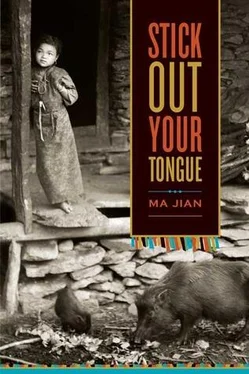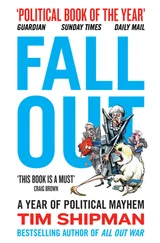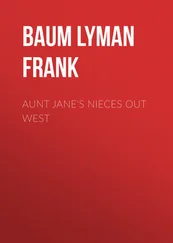When the book was finished, I submitted it to Liu Xinwu, the liberal-minded editor of the journal People’s Literature . Two months later, in February 1987, it appeared in a double issue of the journal. I didn’t give the publication much thought because by then I’d moved to Hong Kong and my mind was on other things. One evening, however, I turned on the television and saw a newsclip from Mainland China. The officious announcer cleared her throat and said, ‘ Stick Out Your Tongue is a vulgar, obscene book that defames the image of our Tibetan compatriots. Ma Jian fails to depict the great strides the Tibetan people have made in building a united, prosperous and civilised Socialist Tibet. The image of Tibet in this filthy and shameful work has nothing to do with reality, but is instead the product of the author’s imagination and his obsessive desire for sex and money … No one must be allowed to read this book. All copies of People’s Literature must be confiscated and destroyed immediately.’
I telephoned my friends in China at once to find out what was going on. Many of them had already been summoned to the police station to be interrogated about me. The editor Liu Xinwu had been sacked from his job, and the official press was filled with articles denouncing my work. A government campaign against the evils of ‘bourgeois liberalism’ had recently been launched, and I had become its first literary target. The stories’ raw descriptions of life went beyond anything that had been published before in China. But by branding it a work of ‘pornography’, the government had created an interest in the book that they hadn’t intended. Soon everyone from college students to taxi drivers became desperate to get their hands on a copy. The journal was sold on the black market for ten times its issue price. Some entrepreneurs even went to the trouble of making handwritten copies of the book. A month later, the journal Special Economic Zone Literature featured another story of mine, and it too was denounced.
I longed to return to Beijing to defend myself against the government’s allegations, but my friends told me that I would be thrown into prison and advised me to stay where I was. So I lay low in Hong Kong and worked on my next novel. The life of an exiled writer didn’t agree with me, though. Although I was free to read and write what I wished, I felt isolated and marooned. So when news filtered out the following year that the campaign against ‘bourgeois liberalisation’ had come to an end, I jumped on the next train to Beijing. I was interrogated at the Chinese border, and then followed to the capital by plainclothes policemen, but no one tried to arrest me. When I approached literary editors with my completed novel, however, I was told that a blanket ban had been placed on all future publication of my work in Mainland China.
In the eighteen years since Stick Out Your Tongue was first published, I have returned to China countless times. Sometimes I stay just a few days, sometimes several months. The Tiananmen Massacre of 1989 convinced me that I could never make China my permanent home. Nevertheless, something still keeps pulling me back. I am no longer stopped at the border, or followed by the police. The government doesn’t need to keep tabs on me any more, because by denying me a voice they have made me disappear. In China, I have become a moment in history. Whenever I return, I feel like a ghost from the past. On my last visit, I hopped into a taxi near Tiananmen Square. The driver glanced at me through his rear-view mirror and said, ‘With hair like that, I guess you work in the arts.’ When I told him my name, he said, ‘Ma Jian? You wrote that book Show Me Your Tongue , didn’t you? Yes, yes, I mean Stick Out Your Tongue. So what have you been doing since then? Are you still writing books? I thought you were dead!’
I am still writing books, although the only ones that have come out in China have been published under pseudonyms and extensively rewritten by the censors. I am living in London now and, on the surface, my life has changed dramatically. But when I look back at the angry young man who wandered the wilds of Tibet, I realise that I haven’t changed that much. I’m still asking myself the same questions, and still searching for a place where I can feel at home.
On the surface, Tibet too has changed greatly, or at least the towns have. Lhasa has become a dirty, polluted city like any other you might find in China, with karaoke bars and massage parlours and gaudy neon signs. The Chinese government has discovered that economic prosperity is more effective than machine-guns and army tanks in silencing demands for democracy or regional autonomy. But the Tibetans who dare question Chinese rule are still treated with the same brutality. Today, over one hundred Tibetans are languishing in Chinese jails because of their political views.
In the West, I have met many people who share the same romantic vision of Tibet that I held before I visited the country. The need to believe in an earthly paradise, a hidden utopia where men live in peace and harmony, seems to run deep among those who are discontented with the modern world. Westerners idealise Tibetans as gentle, godly people untainted by base desires and greed. But in my experience, Tibetans can be as corrupt and brutal as the rest of us. To idealise them is to deny them their humanity.
The Chinese people have retained a very different view of Tibet. For them, it is not a mystical Shangrila, but a barren outpost of the great Chinese empire. They have swallowed the Communist Party’s nationalist propaganda concerning China’s ‘liberation’ of the country, and would fiercely oppose any moves to break up the ‘integrity of the Motherland’. They know nothing of the destruction the Chinese have wreaked in Tibet, or of the fact that since 1949, an estimated 1.2 million Tibetans have died due to political persecution, imprisonment, torture and famine.
In China, however, there is a saying: ‘That which is united will eventually separate, and that which is separated will eventually reunite.’ If one holds this belief, Tibet’s eventual separation from China is inevitable. But when and how will it take place? My hope is that the separation will be peaceful and that it will take place soon, before any more of Tibet’s unique language, culture and way of life are lost for ever. The Tibetan people, like the Chinese, have been denied control of their destinies, but they are forced to suffer the added torment of being outsiders in their own home.
Ma Jian
London 2005












